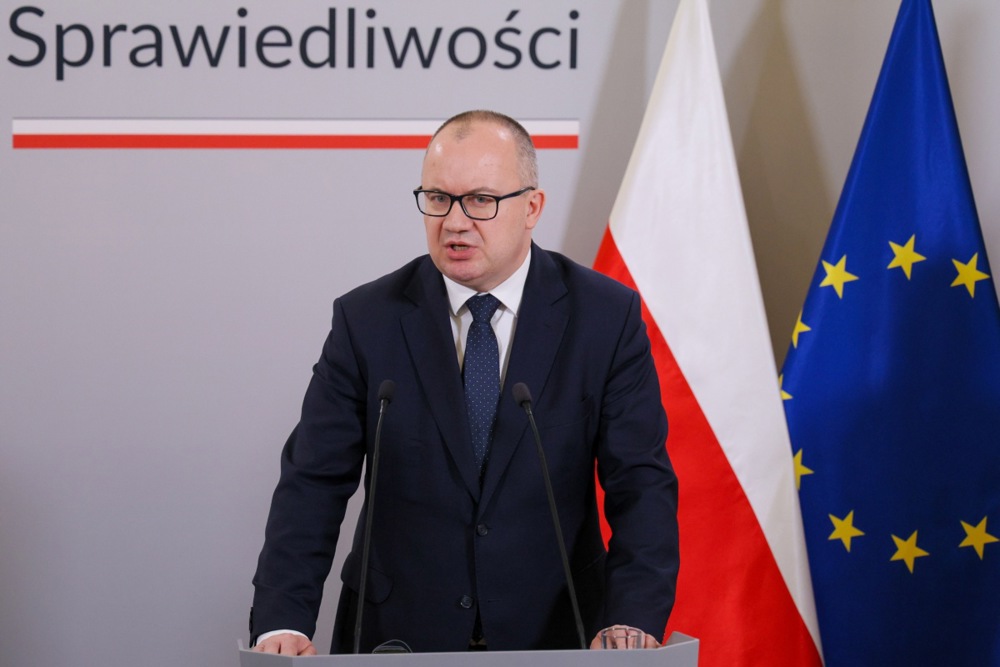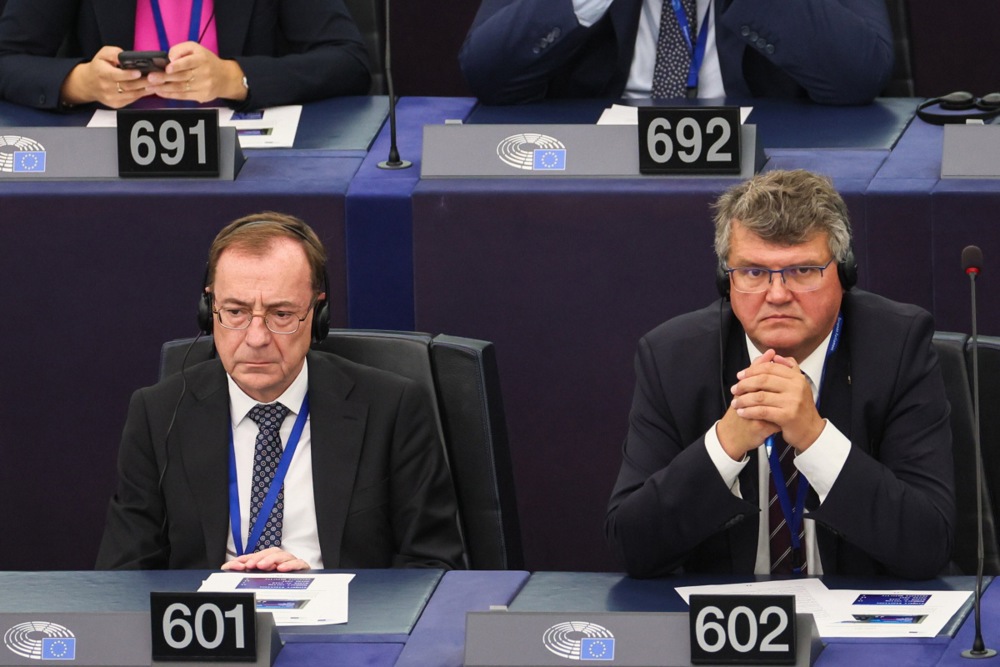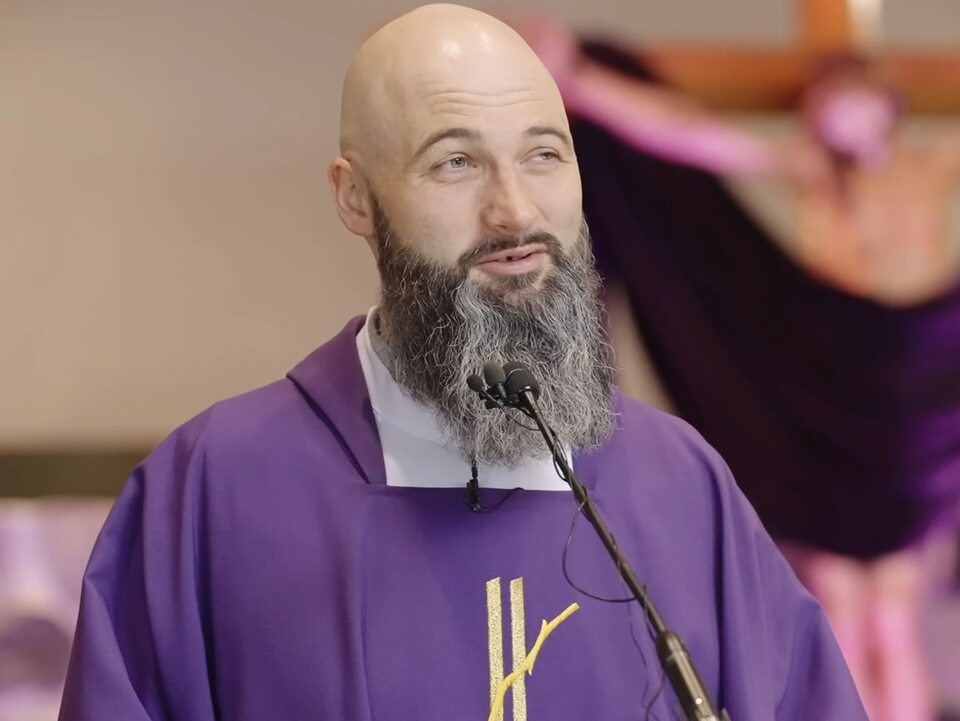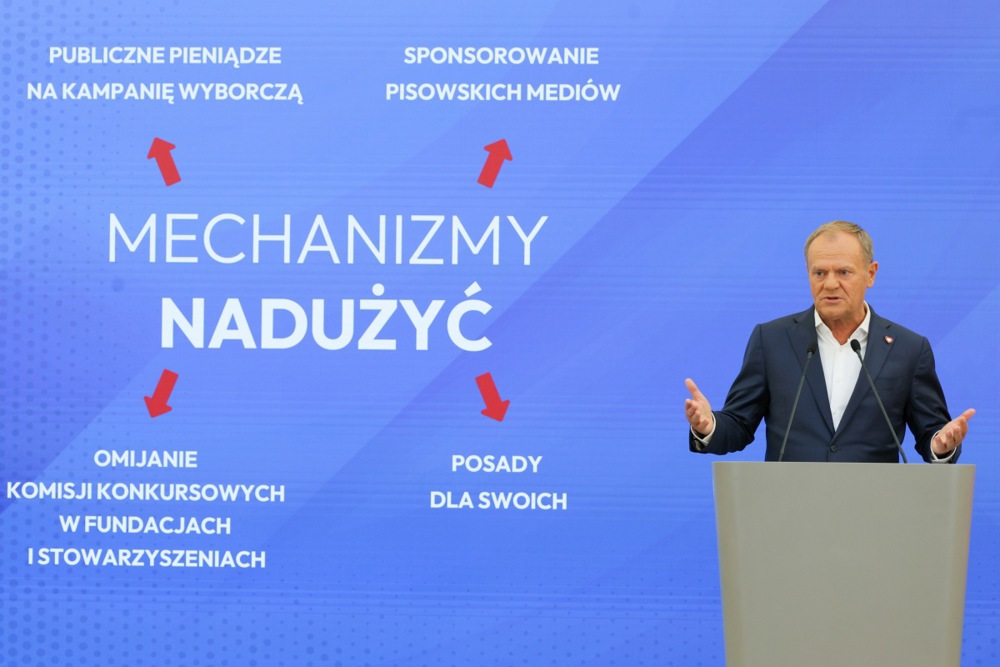Poland’s National Electoral Commission (PKW), the majority of whose members were appointed by the present government, has decided that the former ruling Conservatives (PiS) party will lose millions of euros in State support.
That has come after it found that the PiS benefited by almost €1 million of allegedly illegal funding during last year’s parliamentary elections.
Government ministries and MPs from Prime Minister Donald Tusk’s Civic Coalition (KO) inundated the PKW with documents alleging PiS irregularities and publicly pressured the body to defund the PiS.
In Poland, since the turn of the century, parties have been funded by the taxpayer. Corporate and large individual donations are limited to just over €10,000 per entity. All funding from foreign entities is forbidden.
For a political party to receive State subsidies, the PKW must certify its electoral expenses, which it refused to do for PiS on August 29.
This represents a major departure from past practice, when the body simply checked if all the money paid into election accounts had been properly accounted for and limits for parties and candidates respected.
PKW chairman Sylwest Marciniak confirmed that, as a result of the PKW decision, the one-off subsidy of €9 million the PiS was expected to receive to cover election campaign costs would be reduced by close to €2.5 million.
He also revealed that four members of the PKW, himself included, had refused to sign the resolution removing all PiS funding, but the proposal was carried as a result of the votes by government appointees on the body.
More damaging for the PiS was the announcement that the annual State subsidy of more than €5 million a year it was to set receive over the next three years up to the 2027 parliamentary elections was likely to be withheld entirely.
Irregularities identified by the PKW included allegedly bogus employment of staff on the public payroll who actually campaigned for PiS during the election along with market research carried out by a public company on how PiS was faring on social media.
PKW had at an earlier hearing approved the financial reports of the KO and other political parties that won representation in parliament.
The PiS argued that it was being accused of wrongdoing for actions that other parties had also taken without punishment and that the current government was using the PKW to deprive the leading opposition party of funding for future campaigns.
“Everything indicates that we are being treated differently to other entities operating on the Polish political scene,” said leader of the PiS parliamentary caucus, Mariusz Błaszczak. “This is a scandal and in itself is a violation of the law.”
Former PiS prime minister Mateusz Morawiecki took to platform X to state that the latest move was “part of the political game of the current government, whose goal is the marginalisation of the opposition” and “destruction of democracy”.
The PiS has threatened to appeal to the Supreme Court against the PKW decision. That could create further legal problems as the government could simply refuse to execute the court’s decision and withhold all funding from the party.
The PiS was already under financial pressure with a significant bank loan to repay, the deadline for which has already passed. In addition, the bank that granted the loan, the publicly owned PKO, has stated it was not willing to reschedule repayments.





